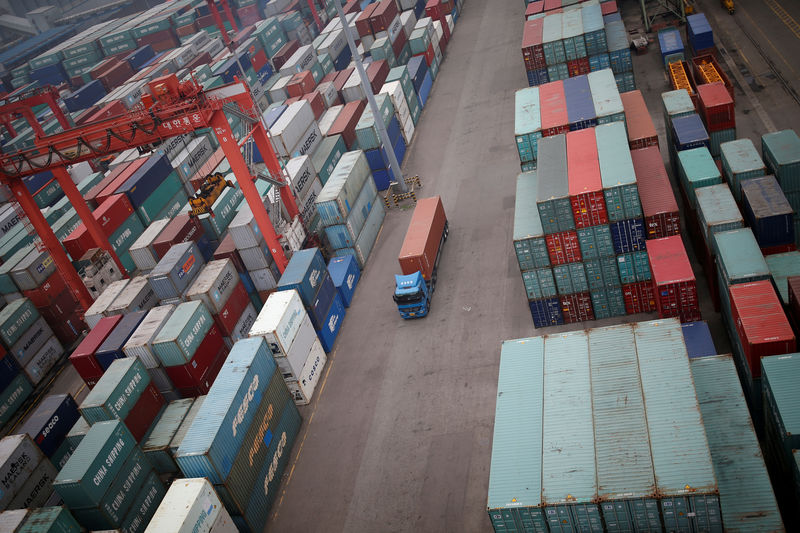By Choonsik Yoo and Joori Roh
SEOUL (Reuters) - South Korean exports in October fell for an 11th consecutive month and by the most in nearly four years on-year as shipments to China kept slowing and computer chip prices plunged, data showed on Friday.
The country's exports dropped 14.7% in October from a year earlier, trade ministry data showed, setting the worst fall since January 2016 and missing a median 13.8% fall tipped in a Reuters survey and an 11.7% decline in September.
Economists said the poor data confirmed that it would take some time for any recovery to take hold, with the global economy still slowing and the U.S.-China trade row still unresolved.
"It appears exports were weak in both volume and value terms, and we can't talk about recovery until one or both of the two measures secures a firm growth momentum," Lim Hye-youn, economist at KTB Investment & Securities.
Investors, however, shrugged off the export figures, given the focus on global issues.
The Seoul stock market's KOSPI (KS11) edged up 0.1%, the won was fell 0.6% against the dollar, while liquid three-year treasury bond futures added 0.08 points after the first 45 minutes of trade.
The reading also bodes ill for South Korea's economic growth for the final quarter and for the whole year, as growth for all of this year now looks set to miss the psychologically important 2% mark without a significant rebound in exports.
South Korea, the first major exporting economy to release monthly foreign trade data, has been struggling especially hard from the prolonged U.S.-China trade war on top of already cooling global demand.
Sales abroad of semiconductors, the country's major export item, tumbled 32.1% in October over a year earlier, while total shipments to China dropped 16.9%, both dealing a decisive blow to the country's overall shipments abroad.
Though signs of a thaw in the U.S-China trade tensions provide some cause for optimism, economists say uncertainties remain high and exports have yet to show firm evidences of bottoming out.
Imports in October slid 14.6% from a year earlier, more than a predicted 13.2% drop in the Reuters survey. That brought the October trade balance to a $5.39 billion surplus, versus a $5.98 billion surplus in September.
The trade figures came out shortly after separate data showed South Korea's annual consumer price inflation stood at zero percent in October, pulling out of its first deflation on record in September.
On Oct. 16, the Bank of Korea cut the policy interest rate for the second time in three months. The 25 basis points cut to 1.25%, matching a record low, was done to support the faltering economy, and the central bank left the door open to further easing.

South Korea's economic growth slowed more than expected in the third quarter, central bank data showed last week, and the outlook was clouded by a domestic spending slump and intensifying global trade frictions.